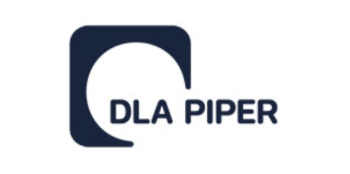The Committee on Foreign Investment in the United States (CFIUS) consists of multiple US government agencies tasked with screening foreign investments in, acquisitions of, or certain other transactions involving US businesses and certain US real estate (even if there is no business associated with the real estate) to determine their impact on US national security. In serious cases, CFIUS can cause deals to be blocked or unwound. Parties must file a mandatory submission to CFIUS if their deal satisfies certain triggers in relevant regulations. In other instances, it may be highly advisable for parties to notify CFIUS on a voluntary basis even if a mandatory filing is not triggered.
Israeli companies and funds that intend to engage in investments in or acquisitions of US business or real estate need to familiarize themselves with CFIUS. In certain cases, CFIUS could also be relevant where an Israeli company sells its US business, investment, or real estate to another non-US person. A common question raised by foreign investors is what happens if they do not notify CFIUS on either a mandatory or voluntary basis. For some time now, CFIUS has monitored press releases, securities filings, and other public announcements or non-public information in an effort to identify so-called "non-notified" or "non-declared" transactions. If CFIUS determines that such a transaction raises potential national security risk, CFIUS has the ability to conduct a unilateral review and/or "direct" the parties to submit a filing for CFIUS's review. As a result of recent legislative and regulatory developments, CFIUS has now received a significant boost in its ability to identify non-notified transactions.
In addition to a substantial increase in funding and staff dedicated to monitoring and enforcement, the Department of the Treasury, which leads the CFIUS review process, has now developed a webpage encouraging members of the public to provide it with tips and referrals with respect to non-notified deals, violations of CFIUS mitigation measures, and certain other matters that raise national security risk. While third parties have always been able to informally raise concerns with CFIUS about a particular transaction (either directly or, for example, through a congressional representative), the webpage establishes a formal process for such notifications. This could mean that corporate rivals, scorned bid competitors, disgruntled former employees terminated as a result of a corporate deal, and other persons may be more encouraged to draw CFIUS's attention to deals that were not otherwise notified to CFIUS. Certain deal parties that are unable to provide CFIUS with a sufficient explanation for their nondisclosure may find themselves subject to a rigorous post-transaction CFIUS review. If a mandatory CFIUS filing was required, parties may face a fine up to the value of the purchase price or investment amount.
CFIUS leadership has also suggested that the Committee intends to issue enforcement guidelines this year, which may assist the public in better understanding the Committee's enforcement priorities.
Given these developments, it is increasingly important for parties to corporate or real estate deals to perform effective due diligence that yields sufficient data points to enable deal parties to make an informed decision with regard to whether they disclose their transactions to CFIUS, or are able to sufficiently defend themselves should CFIUS raise questions after being notified by a third party or otherwise.
For further information on this topic please contact Christine Daya or Danish Hamid at DLA Piper by telephone (+1 202 799 4000) or email ([email protected] or [email protected]). The DLA Piper website can be accessed at www.dlapiper.com.
This update has been reproduced in its original format from Lexology – www.Lexology.com.



